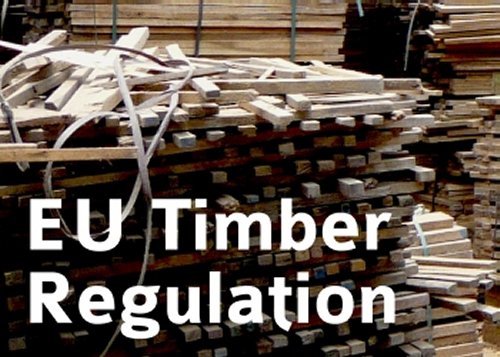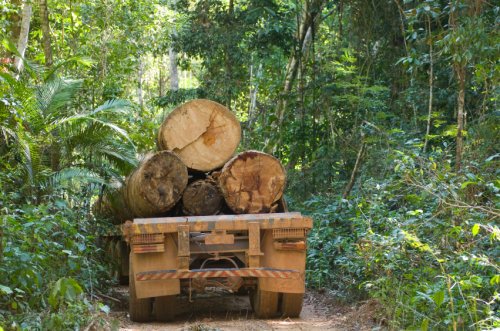New EU Timber Regulation Comes Into Force
A new European Union (EU) regulation coming into effect to counter the trade in illegal timber will affect everyone in the wood trade sector exporting to the European market, including Laos.
This new EU Timber Regulation (EUTR) prohibits illegally harvested timber on the European market in an effort to tackle the problem of illegal logging across the world, according to the EU Delegation in Vientiane.
The EU is a major global importer of timber and wood products. Although volumes of Lao timber that flow directly to Europe are relatively small, large amounts of raw timber from Laos get processed in Vietnam before being exported to European markets.
Chargé d’Affaires of the Delegation of the European Union to Laos, Mr Michel Goffin, said “The EU Timber Regulation is a pragmatic illustration of the importance the European Union attaches to environmental preservation and more generally sustainable development when it comes to trade relations. It is timely for all Lao stakeholders of the forest/timber chain to adapt to this market because of consumers’ demands and evolving legislation.”
Illegal logging has severe economic, environmental and social impacts; it is associated with deforestation and climate change, it can undermine the efforts and livelihoods of legitimate operators, and it can also contribute to conflicts over land and resources.
The EU has granted 6 million euros as a support mechanism for the EU-ASIA Forest Law Enforcement, Governance and Trade (FLEGT) regional programme from which Laos has also benefited, for activities related to improving forest governance and facilitating trade in legal timber during the past years.
Other activities include communications and awareness-raising, support for the Voluntary Partnership Agreement, technical work, including studies and analysis, (co)-organising of FLEGT relevant events and consultations, and support for customs cooperatio n. These activities will certainly help Laos to be ready and compliant with this regulation.
The new law affects both imported and domestically produced timber and timber products, and it covers an extensive range of products, from paper and pulp to solid wood and flooring. Anyone who first places a timber product on the EU market must apply “due diligence” to ensure that the wood they are trading is legal. Traders who buy or sell timber already on the market are required to keep adequate records so that the wood they deal in can be easily traced.
Last week, the FLEGT local national coordinator in Laos was identified, who will support the FLEGT Focal Point in setting the negotiations and working structures in the country. She will communicate to stakeholders and initiate the ongoing work on Legality Definition and Timber Legality Assurance Systems to enhance the policy dialogue and the different activities of the process.
published with the permission of Vientiane Times


